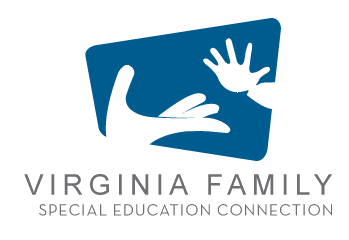Applied Behavior Analysis (ABA)
Skip to search results Showing Results 1 - 9 of 9
Description: Easterseals UCP provides meaningful and exceptional services so that children, adults and families living with disabilities, behavioral health challenges and autism can live, learn, work and play in their communities. Easterseals UCP’s Intellectual & Developmental Disabilities (I/DD) services provide home and community-based supports that help children and adults be engaged and contributing members of their family and community. Our Behavioral Health programs are evidenced-based and...
Description: The purpose of this guidance document is twofold. First, this guidance document will address specific legislation related to the provision of applied behavior analysis (ABA) services in the school setting. Second, this guidance document will provide considerations for both school division personnel and private providers in order to promote successful services and supports for students who may receive ABA services. It should be made clear, however, ABA services can be provided by a school...
Description: Established in 1992, the May Center School for Brain Injury and Neurobehavioral Disorders is one of only a few pediatric programs in the United States focusing on both education and rehabilitation of children and adolescents with neurobehavioral, genetic, and related disorders. This nationally recognized school provides exceptional services to children, adolescents, and young adults, ages 5-22, with a broad range of neurobehavioral challenges. These include brain injury, genetic or...
Description: Conducting Appropriate FBAs - Part 1 - The concepts discussed in this session are designed to augment the capabilities of personnel who do Function Based Assessments for children who display a wide variety of challenging behaviors. This training specifically focus on providing attendees: a) a theoretical background of applied behavior analysis, b) the knowledge to operationally define, record, and display behavior for appropriate data analyses, and c) the background knowledge of key concepts...
Description: Our understanding of how best to support the learning of individuals with ASD always evolving. With new autism research becoming available, it is necessary for educators, medical personnel, parents, and other service providers to stay up-to-date on best practices, evidence-based interventions and strategies available to support those with ASD. Evidence-based practice (EBP) are those practices that have been researched and are widely accepted and recognized as effective techniques. ...
Description: Many interventions exist for autism spectrum disorder (ASD). Yet, scientific research has found only some of these interventions to be effective. The interventions that researchers have shown to be effective are called evidence-based practices (EBPs). One reason for using EBPs is because, by law, teaching practices must be based on evidence of effectiveness. What EBPs have been identified? The NPDC used a rigorous criteria to classify 27 focused interventions as EBPs in 2014. The 27...
Description: Since 1974, the Association for Behavior Analysis International (ABAI) has been the primary membership organization for those interested in the philosophy, science, application, and teaching of behavior analysis.
Description: The Behavior Analyst Certification Board, Inc.® (BACB®) has been the leader in behavior analyst certification for over two decades. The BACB is a nonprofit corporation that was established in 1998 to meet professional certification needs identified by behavior analysts, governments, and consumers of behavior-analytic services. The BACB’s mission is to protect consumers of behavior-analytic services by systematically establishing, promoting, and disseminating professional standards...
Description: ASAT’s mission: We promote safe, effective, science-based treatments for people with autism by disseminating accurate, timely, and scientifically sound information; advocating for the use of scientific methods to guide treatment; and combating unsubstantiated, inaccurate and false information about autism and its treatment Since autism was first identified, there has been a long history of failed treatments and fads, levied on vulnerable individuals as well as on their families. From the...





